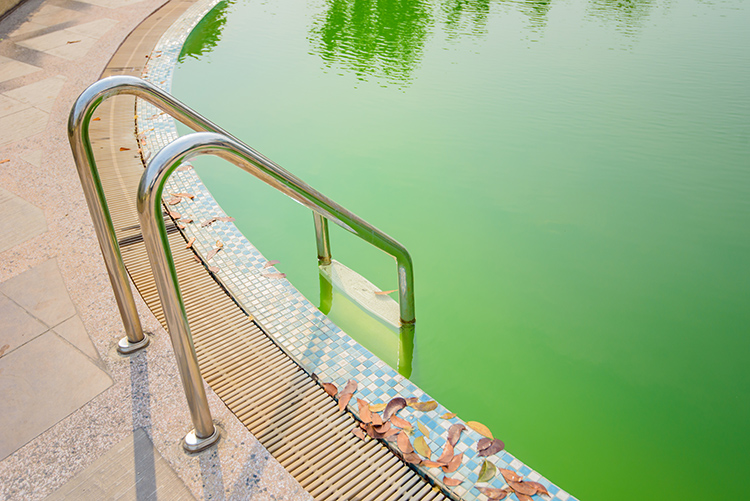Pool Closing and Phosphates
Cooler weather is just around the corner and before you close your pool, you should check the level of your phosphates. At Waters Choice, we recommend that you test your pool three times a year.
- At the beginning of the season when you open your pool and turn your heater on.
- At the middle of heavy swimming use.
- The end of the swimming season
**Notably, it's important to make sure your pool water is balanced and free of phosphates and other debris when closing it for the season.
What Exactly ARE Phosphates?
Phosphates are a natural component of most swimmer wastes. Additionally, it’s also present in rain water. Phosphate is persistent and doesn’t break down naturally. Believe it or not, landscape fertilizers may blow into the pool and they have a high phosphate content. Along with fertilizers, mulch or soil and even leaves that enter the pool contain phosphates.
**Phosphates are essentially a food source for algae which is why water with a high level of phosphates becomes tinted green. With that said, phosphates are like a buffet for algae. The greater the size of the buffet, the more algae come to feed. Sadly, with more algae coming to feed in the water, it takes more chemicals to keep the production under control.**
Algae Grows When Phosphates Are Present
Phosphates are plant food and algae are plants. So, if you’ve had persistent trouble with algae, every year – and it always seems to come back, you likely have a phosphate problem in your pool. When excess phosphates are present in a swimming pool, the symptoms often include the following:
- Cloudy, green water
- Slippery and slimy surfaces
- Mustard and green colored debris
- Excessive chemical consumption
- Poor water quality
Test for Phosphates
 You can test for phosphates in your pool, spa, or pond with a phosphate test strip.These can be purchased from your local pool store. As a side note, you might think about taking a sample of your pool water to be tested as well.
You can test for phosphates in your pool, spa, or pond with a phosphate test strip.These can be purchased from your local pool store. As a side note, you might think about taking a sample of your pool water to be tested as well.**Looking for regular three way testing strips? Click HERE
If your phosphate level goes above 200 ppb (parts per billion) then you need to lower the level with a phosphate remover.
Treatment
 First, test for phosphates.
First, test for phosphates.Backwash your pool thoroughly
Apply phosphate remover per label dosage rate specified
Run filter for 48 hours
Backwash pool filter
Re-test for phosphate levels.If necessary, repeat steps 3-5
While initially adding phosphate remover consistently may seem like an added cost, it’ll end up saving you time, money, and most importantly – AGGRAVATION!

Remember to check out our newsletter by signing up on our website HERE and going to our social media platforms and following us.
We'll see you there!
